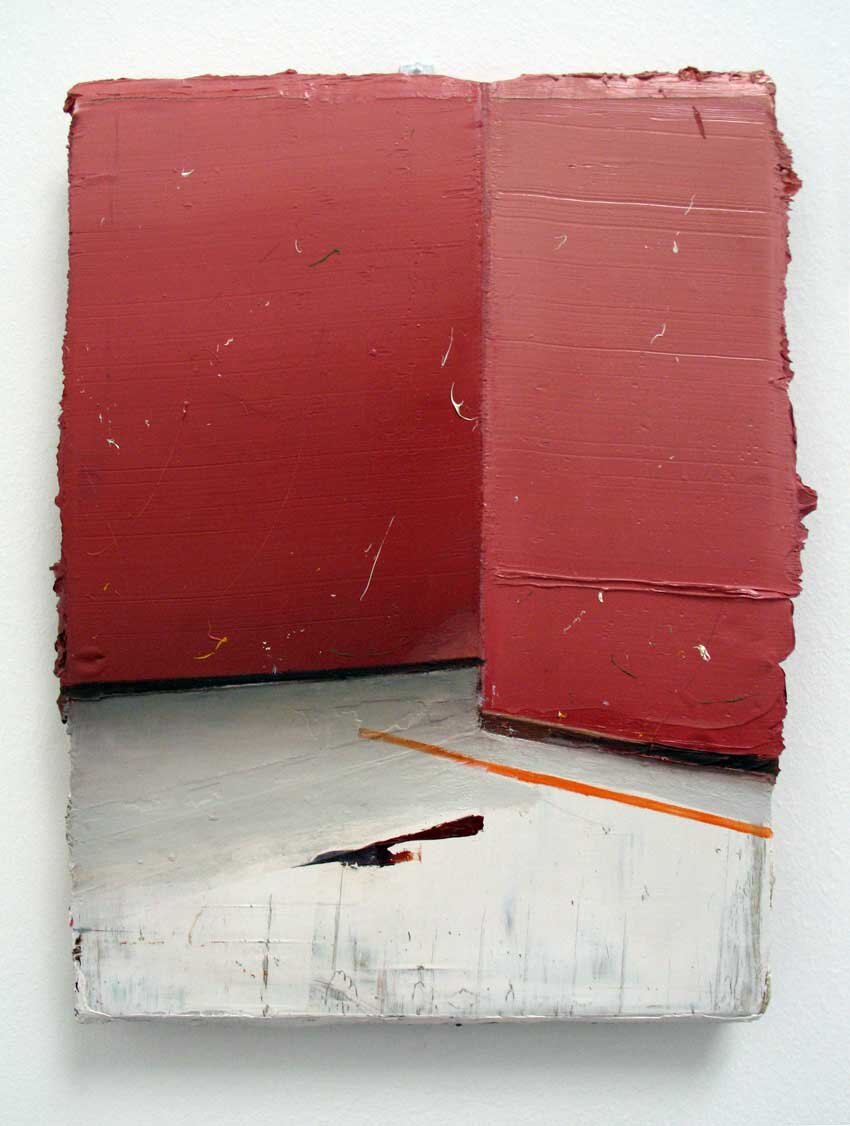Ecke, 2005
Oil on Canvas, 40 x 30 cm
51st Biennale, Venice
1st November 2005
Despite his work being in the Saatchi collection and at Frieze 2004, I had never seen it in either print or at an exhibition before. This is a man who is obsessed with interior space. Almost every painting shown was an interior, all sparsely furnished and unoccupied. In fact I cannot even remember a door or window and the overall effect was of very claustrophobic spaces. I felt they were almost a mental space rather than an actual space - probably because there were limited details to associate with.
My favourite was this simple painting of just a corner. It is typical of the work shown, exploring space through the construction and deconstruction of an imagined interior by building up layers of paint at the same time as creating overlapping perspectives. The paint is so thick that it overhangs the edge of the canvas (see below) making the image almost a sculpture. Then having created the space and depth within the picture, with the thickly painted surface he reminds us of the flatness of the painting by covering areas with fine speckles or drips of paint.
In all of his interior views there is an all-prevailing absence of a utopia, they are sites that seem to have no relation with the real space of Society. However, nor are they sites of voyeurism like the sets of television reality programmes such as Big Brother. These are fundamentally unreal spaces, offering nothing to distract the occupants from their own existence or let them forget their own life. We are given no clues as to the function of the rooms and without windows and doors it is as if the outside world doesn’t exist.
The other interesting aspect of these spaces is the difficulty one has assigning a date or a period to them. Devoid of meaningful visual clues, even when a sparse piece of furniture or decoration is included, we are thrown back on regarding the walls as intersecting colour planes. For me this reinforces the notion that these rooms are psychological rather than physical spaces. Without a connection with time or reality they become somewhere to mentally retreat to, and be alone for reflection and contemplation.
©blackdog 2020

